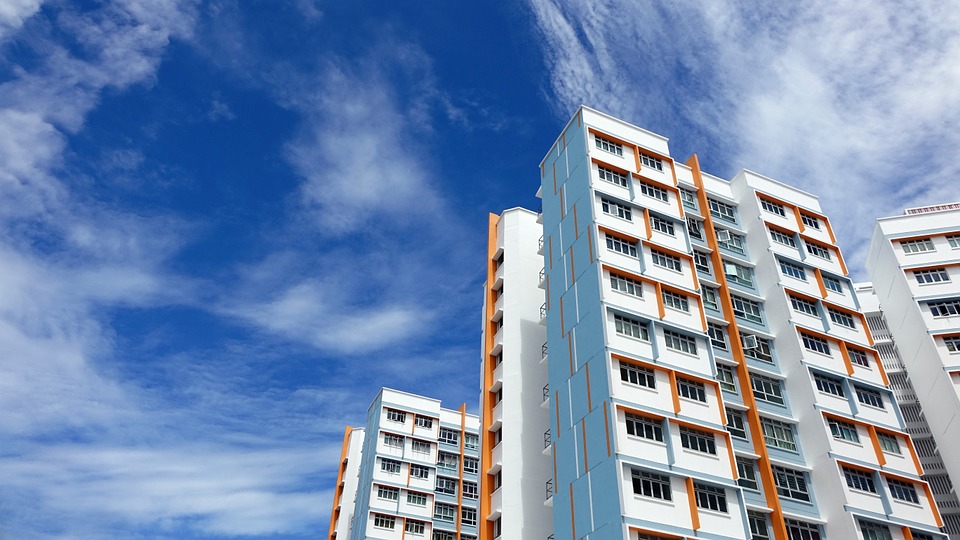According to a recent news report in the Business Times, home loans in Singapore are becoming more accessible due to sliding interest rates which moderated to 1.88% in October 2019 following recent rate cuts by the US Federal Reserve.
Some analysts expect the 3-month Interbank Offered Rate (SIBOR), which is the benchmark for mortgages in Singapore, to remain low or drop even further this year.
This could increase the demand for private residential properties in the city-state, with analysts predicting that between 9,000 and 10,000 units could be sold in 2020.
While the signs point to a healthy outlook in the property market, the Monetary Authority of Singapore (MAS) in its Financial Stability Review cautioned that prospective buyers should be mindful of risks and remain prudent before entering into buying a property, taking on a mortgage, and servicing the mortgage.
So, what are some of the risks? Below, we’ve outlined the biggest risks facing the Singapore property market in 2020.
1. Lower transaction volume
According to data from the Urban Redevelopment Authority (URA), there were a total of 5,763 private units transacted in Q3 2019, down from 6,693 units in Q3 2017. Resale volumes contributed to 59% of total sales in Q3 2017, but two years later this had dropped to about 41%.
The ongoing property cooling measures, which includes paying the Additional Buyer’s Stamp Duty (ABSD) and Seller’s Stamp Duty (SSD), as well as meeting the 60% Total Debt Servicing Ratio (TDSR), have made buyers more cautious and stamped out speculative activity.
While this is healthy for the long-term prospects of the residential market, the lower resale transaction volume means that sellers may find it tougher to sell their units. As such, they will need to find the right agent to help them sell their property.
At auctionjia, our agents are supported by a dedicated full-time online marketing team, planning and executing a well-thought out advertising campaign across Facebook, Instagram and LinkedIn.
2. Slowing economic growth
The global economy remains weak due to ongoing US-China trade tensions and increased uncertainty. Amid economic uncertainty, MAS has cautioned households that are already over-extended to avoid taking up new debt.
Growing concerns about the economy has also impacted the job market, with Singapore’s unemployment rate inching up to 2.3% in Q3 2019 from 2.2% in the previous quarter, according to data released this month from the Ministry of Manpower.
MAS noted that the “softening labour market could portend downside risks to income growth with implications for debt servicing among highly leveraged households”.
3. Plenty of unsold units
While sales of private homes, especially new units have surged in recent months on the back of numerous condominium launches, the Urban Redevelopment Authority revealed that there were 31,948 unsold units as at Q3 2019. Given that private home sales have averaged around 2,500 units per quarter, it could take almost four years to clear the unsold stock, according to a recent Bloomberg article.
The problem will likely be exacerbated as developers continue to redevelop and launch projects. Amid the increased supply of unsold units, a drop in demand for residential properties could put downward pressure on prices in the medium term, said MAS.
This may be good news for buyers hoping for more affordable homes, but individual homeowners may face increasing competition from developers who have a five-year timeframe to sell all their new launch units.
4. Impact on rentals
While the vacancy rate has fallen from a peak of 8.9% in Q2 2016 to 6.1% in Q3 2019 due to the drop in the number of completed housing units, MAS noted that the tepid economic outlook coupled with the pipeline supply of new residential units could lead to downward pressure on rentals.
In addition, MAS warned that investors who borrowed at higher mortgage repayments relative to incomes could face difficulties meeting the repayments on their investment properties.
5. Developers remain cautious
Although property developers continue to launch new projects and participate in Government Land Sales tenders, developer sentiment remains muted, according to MAS. This is especially evident in the en bloc market, which recorded $8 billion worth of deals in 2017 but slowed down considerably with only one project successfully sold since Q3 2018.
While there are concerns over the outlook for the property market, it’s safe to say that genuine buyers who exercise financial prudence and have sufficient cash savings should consider buying or investing in Singapore property. Despite economic headwinds and global uncertainty, the property market remains resilient and the country continues to be a safe haven for foreign investors.
If you’d like to know more about buying residential property in Singapore, please contact us at: sales@auctionjia.com.sg
